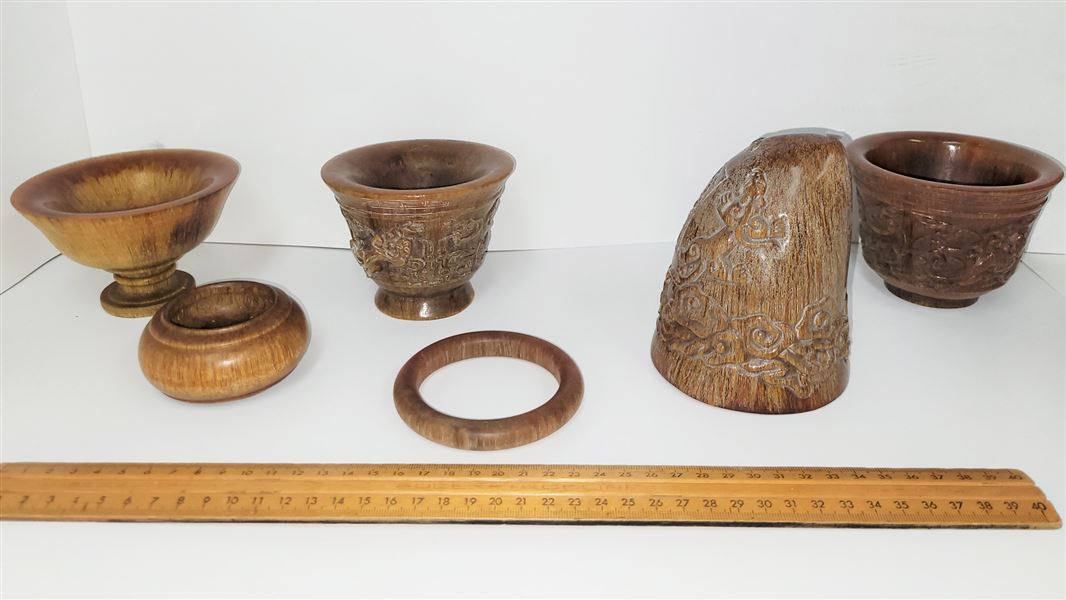Archived content: This media release was accurate on the date of publication.
Date: 06 December 2022
DOC’s Investigations Team Lead Officer Dylan Swain says the six carved items, weighing a total of 1.73 kilograms, were seized after staff from the three agencies executed search warrants at addresses in the Auckland suburbs of Glenfield and Epsom.
It is thought to be the first time rhino horn items have been seized domestically in New Zealand. The rhino horn seized in the operation had been carved into small bowls, a piece of jewellery and an ornamental item.
“We believe these items, although relatively small, would fetch very high prices on the international black market,” Dylan Swain says. “Their prices would range from $15,000 to several hundred thousand dollars.”
Dylan Swain says the agencies’ staff believe the rhino horn items were being traded at community markets across Auckland – but had entered the country years ago, without the relevant permit, making their trade within New Zealand illegal.
DOC staff have carried out basic scientific testing giving confidence the items are made from rhino horn. Further forensic testing is expected to confirm this.
Importation of rhino horn without the relevant permit is an offence under the Trade in Endangered Species Act, the maximum for penalty for doing so is five years in prison or a fine of up to $100,000.
“To combat the challenge of wildlife crime, co-operation between government agencies is essential,” Dylan Swain says. “DOC’s Compliance team appreciates the support provided by Police and Customs in investigating the trade of these items, and this week’s seizure.”
Customs Investigations Manager Cam Moore says results like this show the excellent working relationship and joint aim agency partners share to detect and deter the illegal trade of wildlife, and raise awareness of its devastating effects.
“Customs is committed to enforcing cross-border wildlife crime and protecting our own flora and fauna from being exploited. This is a great result for all agencies involved.”
Two members of the public who reside in Auckland are helping DOC with its enquiries into the trade of the rhino horn items.
There are five species of rhino: Indian, Sumatran, Java, black and southern white. Indian, Sumatran, Java and black rhino are critically endangered, and although the population of black rhino has gradually increased through protection methods, they still face significant threats from poaching and habitat loss.
Anyone with information about rhino horn items being traded at markets in Auckland is encouraged to contact wildlifecrime@doc.govt.nz.
Background information
If you are aware or suspicious of anyone who may be involved in smuggling goods that are protected under CITES, call Customs on 0800 WE PROTECT (0800 937 768) confidentially or Crimestoppers on 0800 555 111.
Contact
For media enquiries contact:
Email: media@doc.govt.nz
